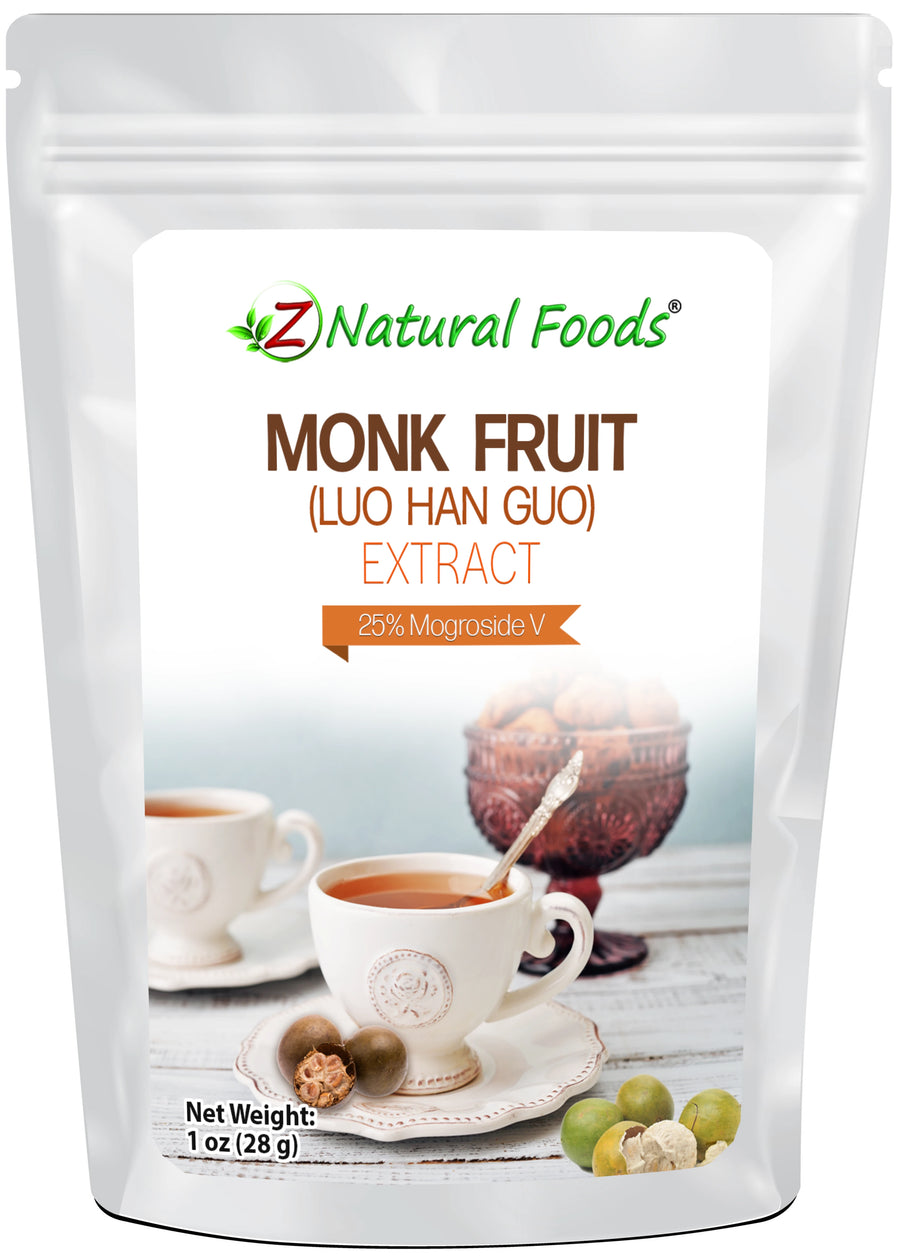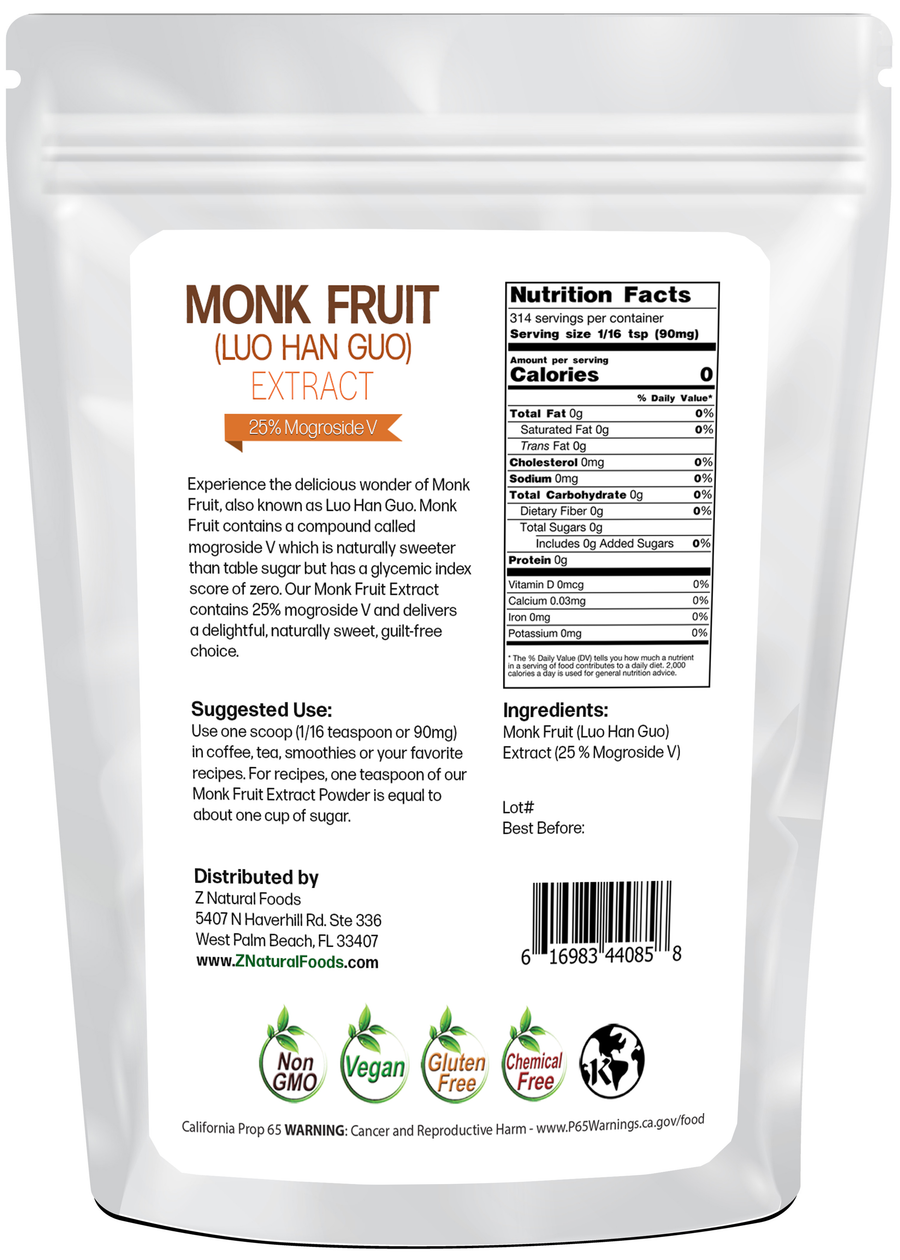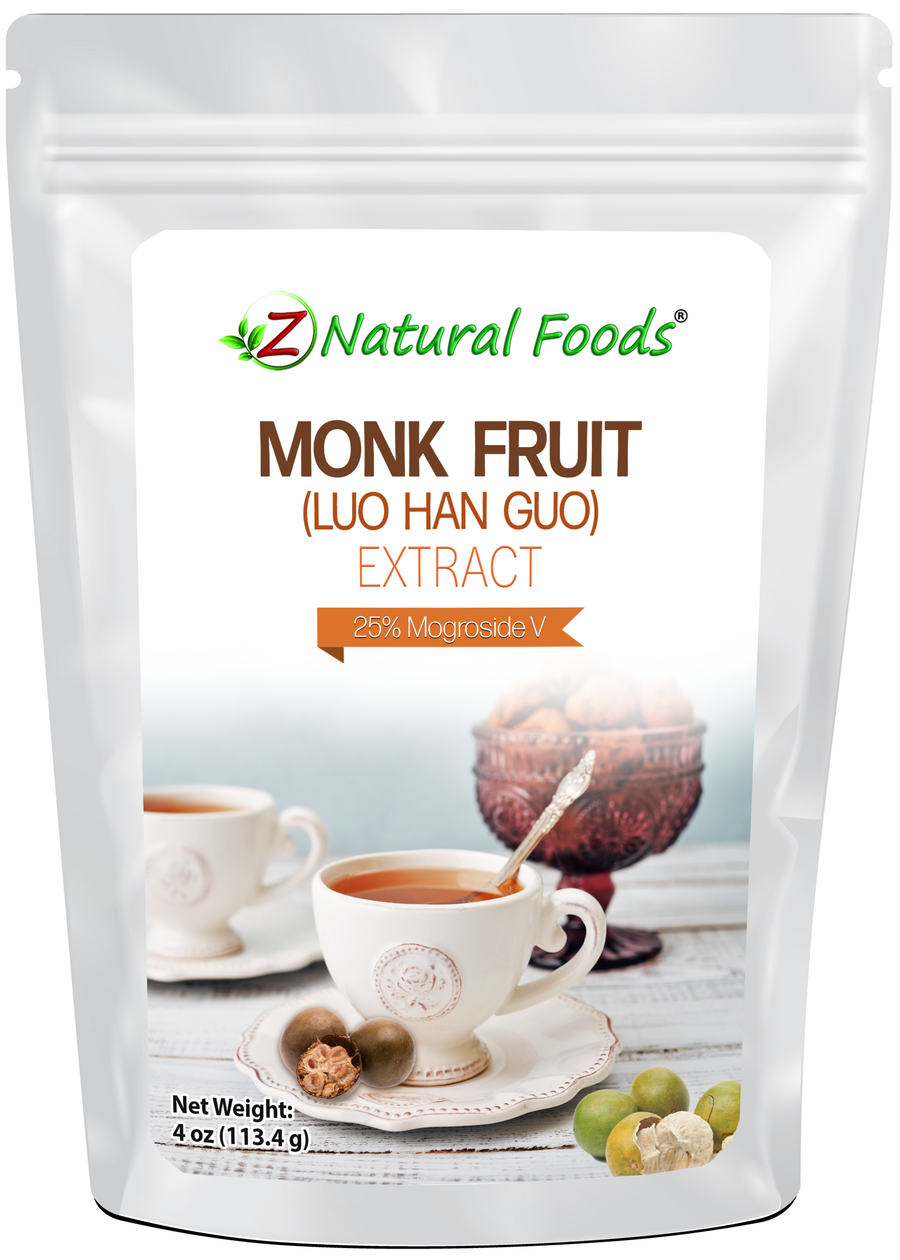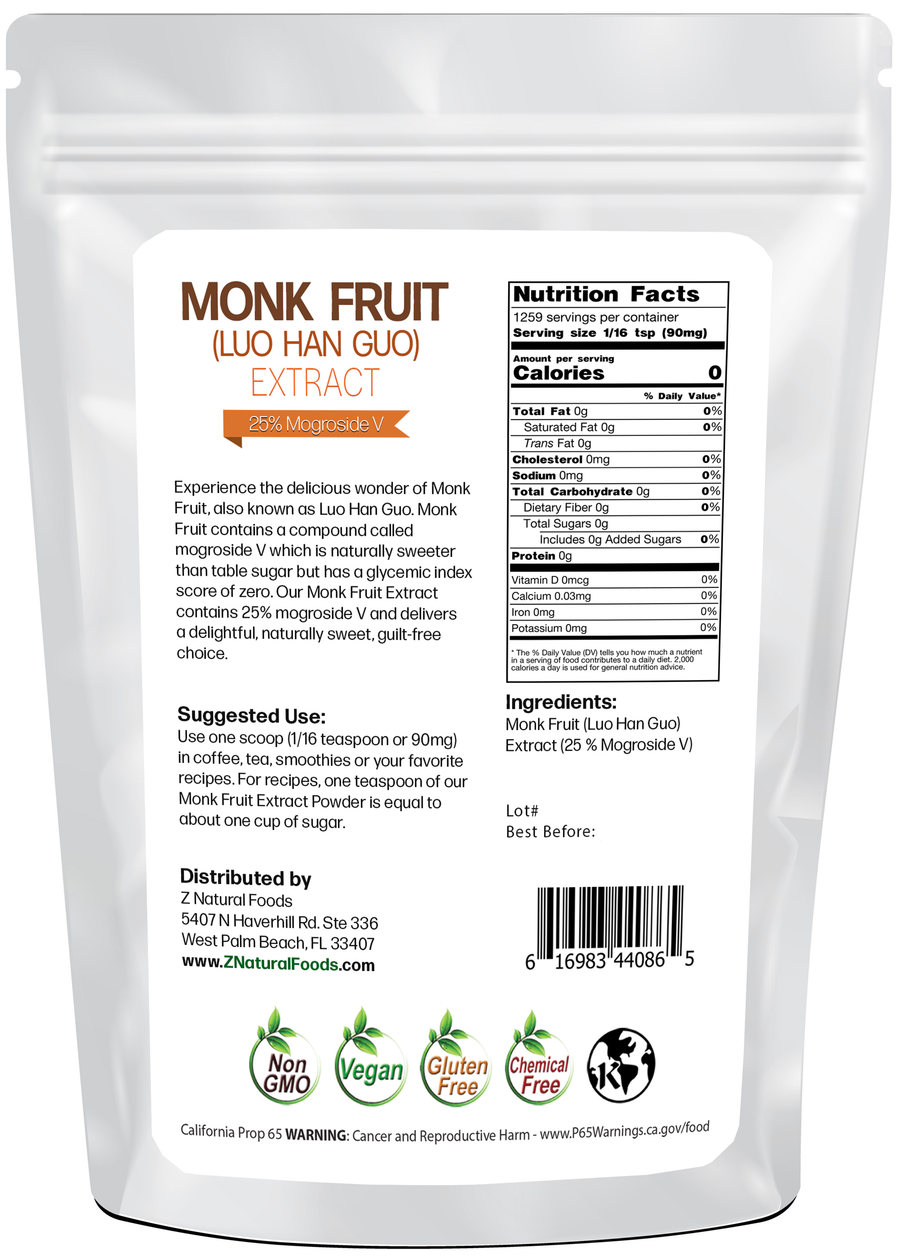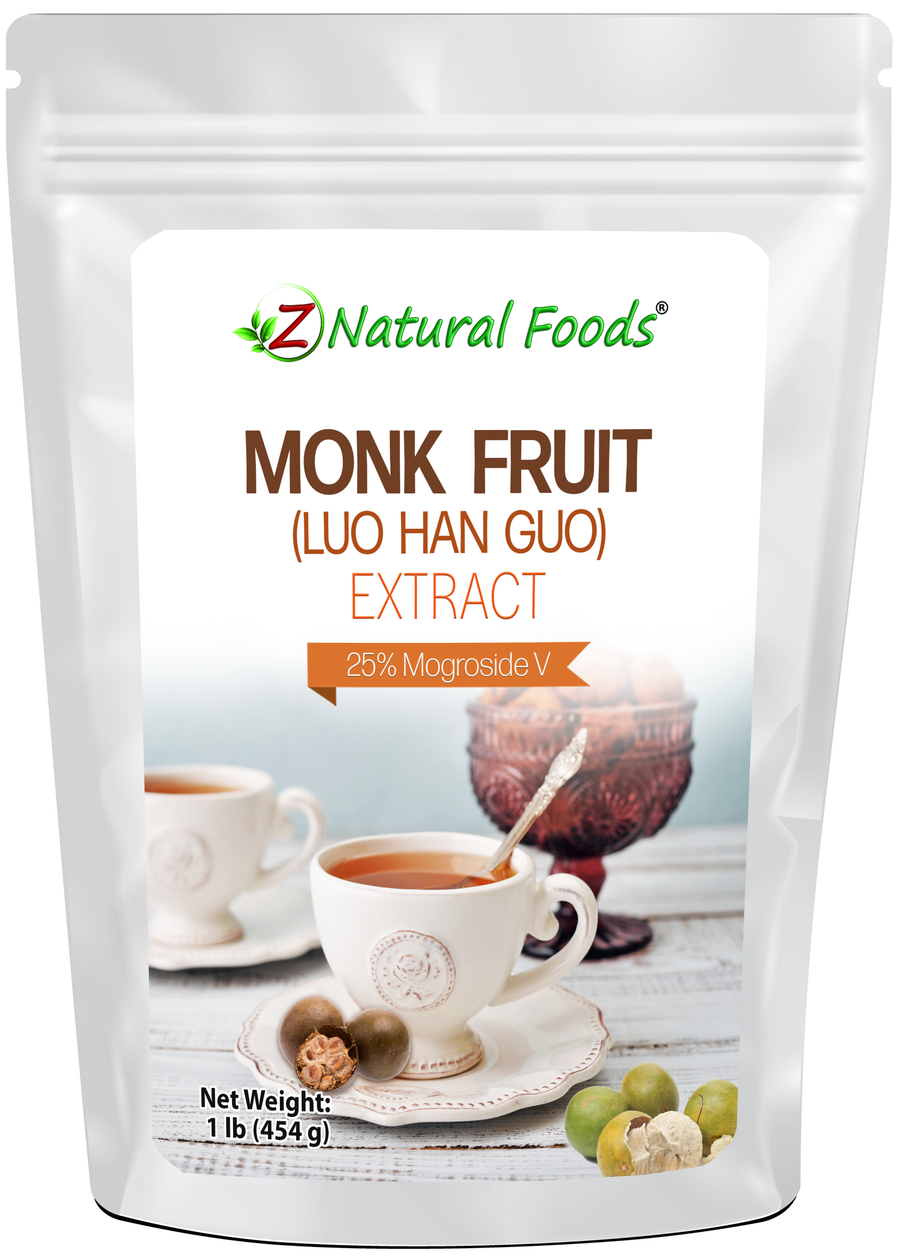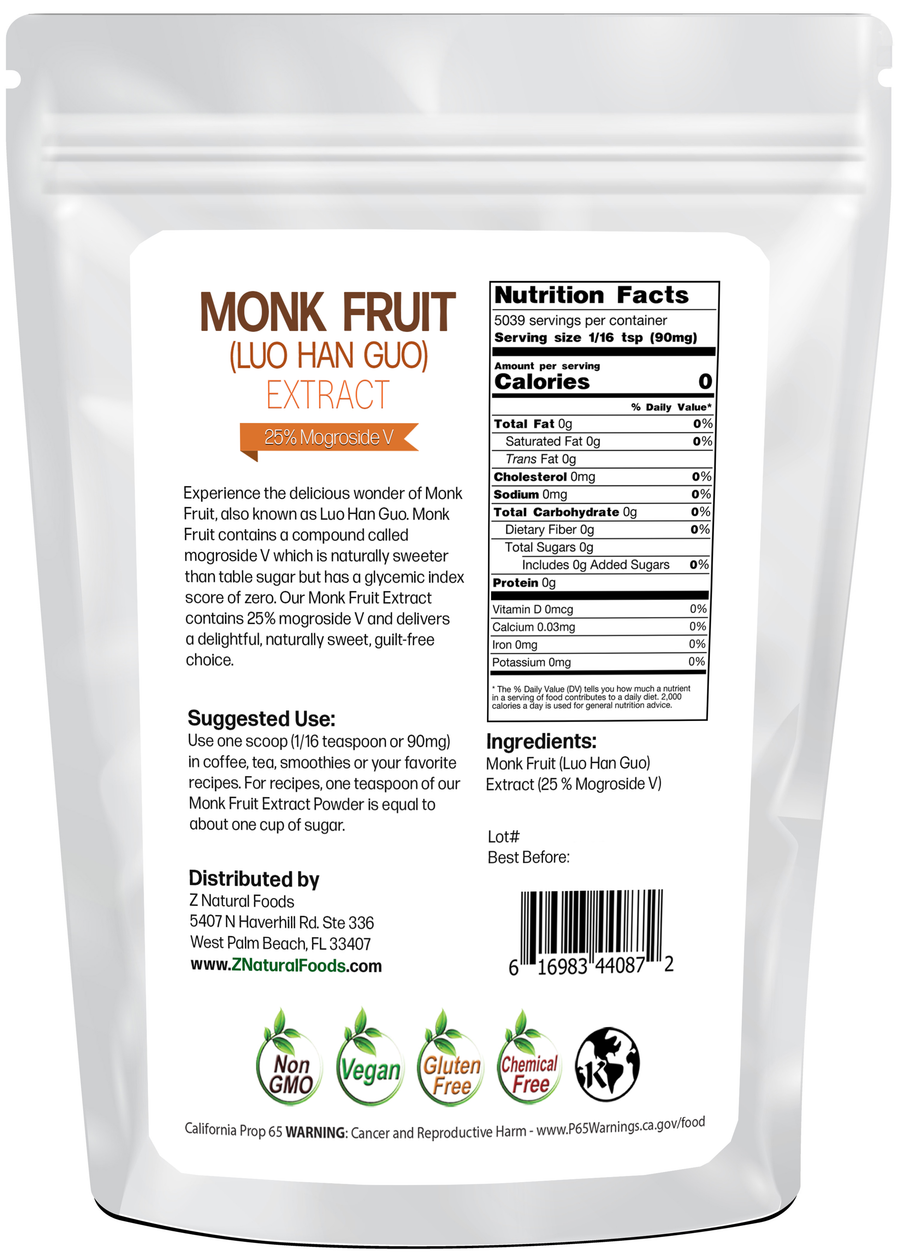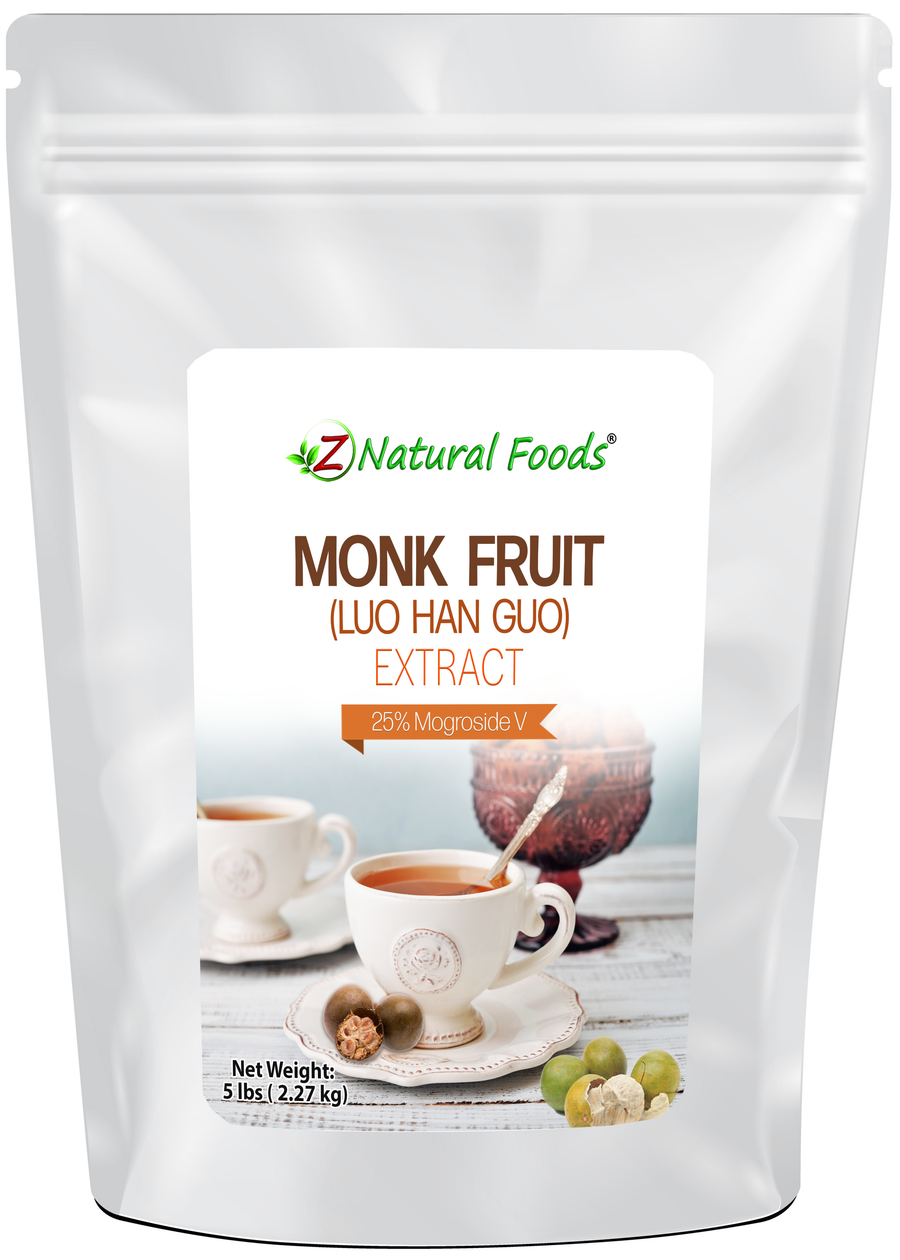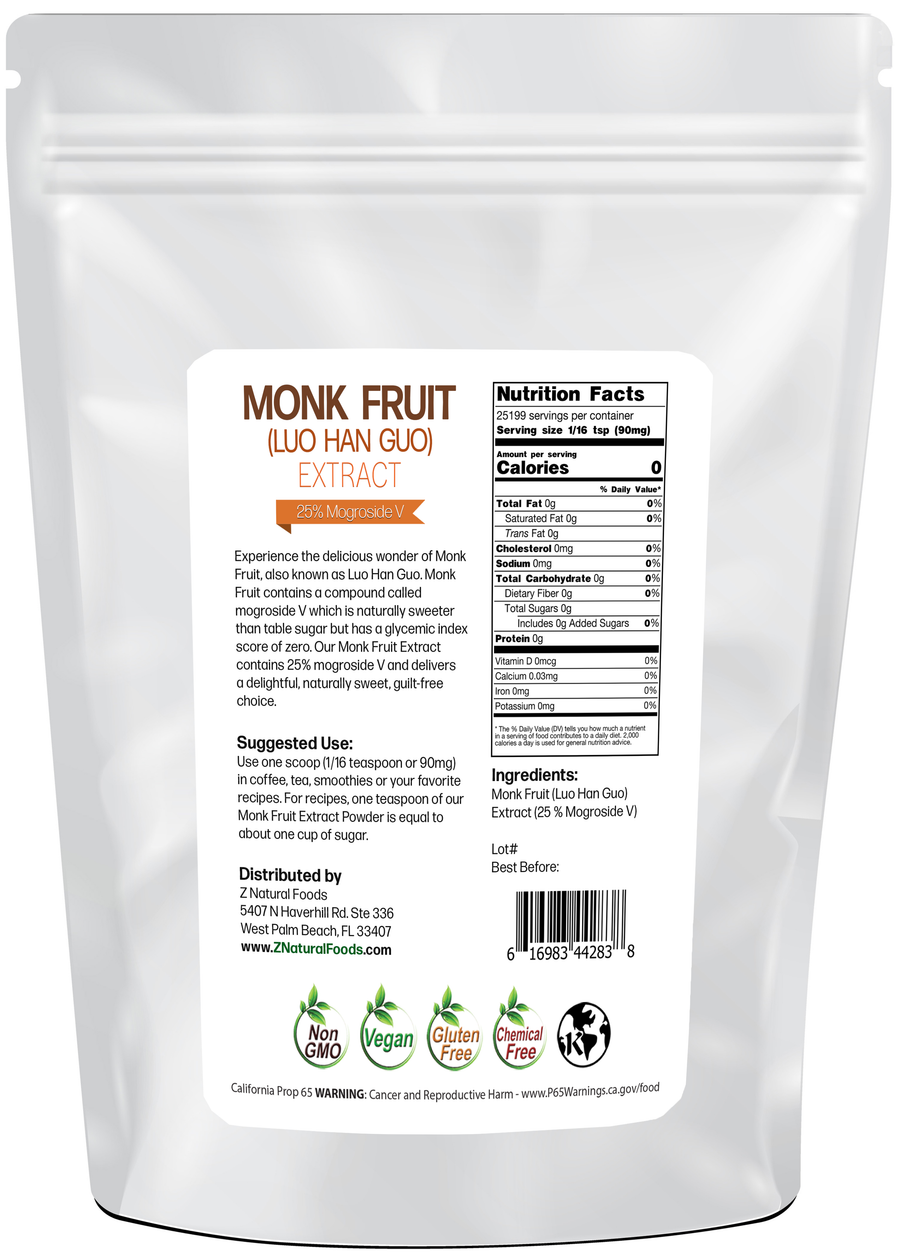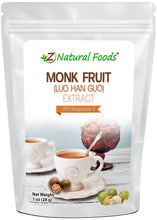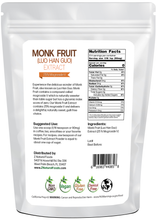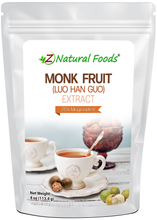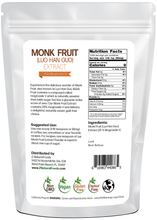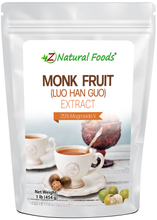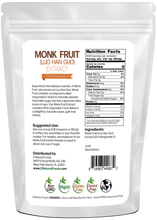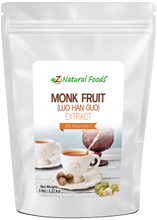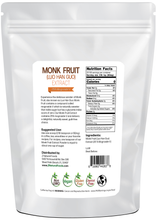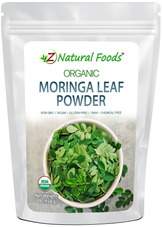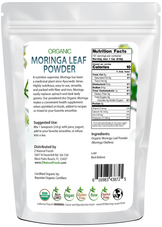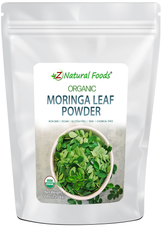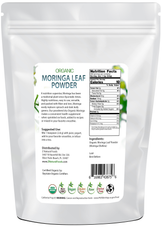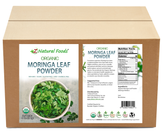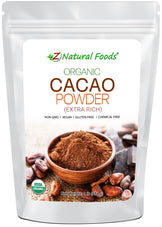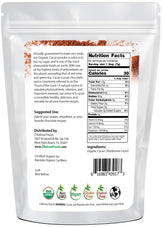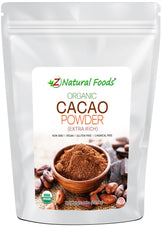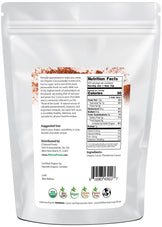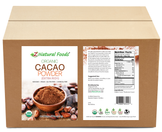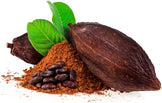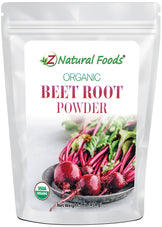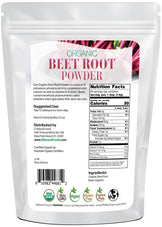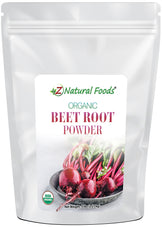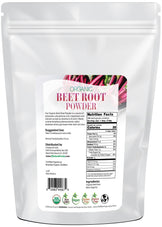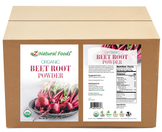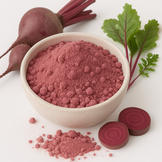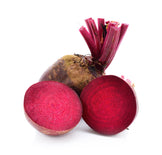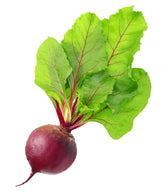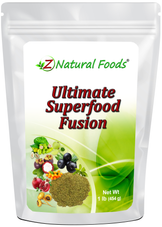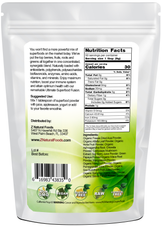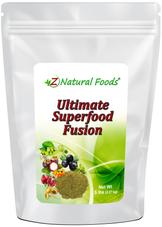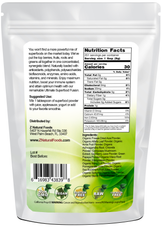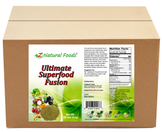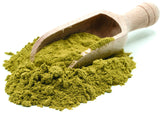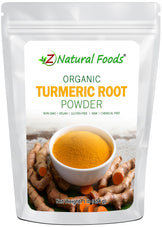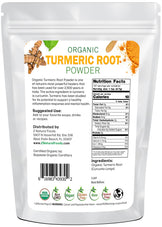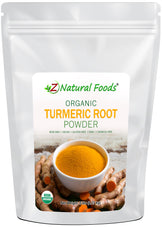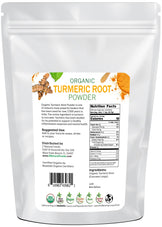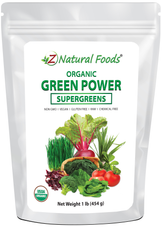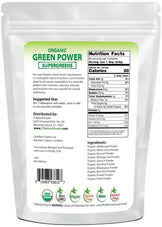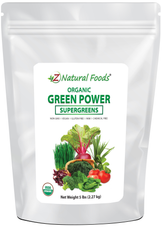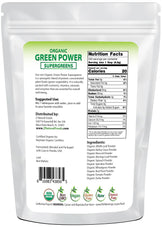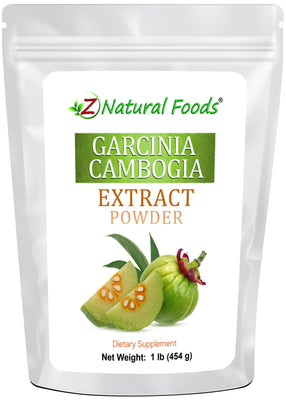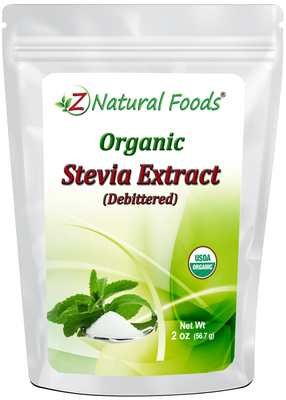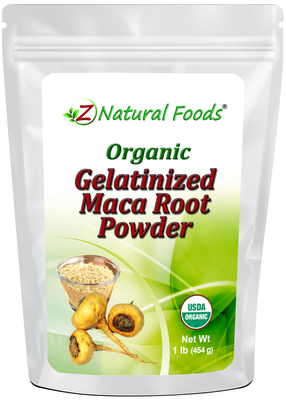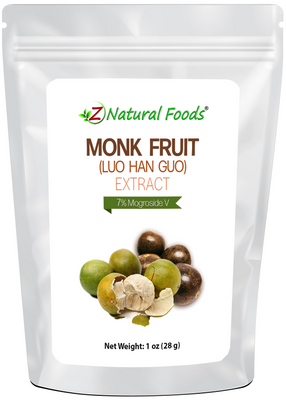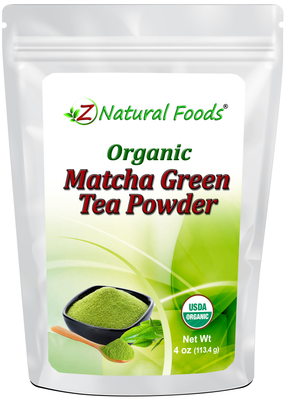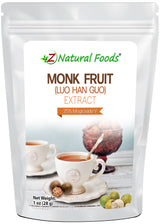About Product
Monk Fruit Extract Powder is made from the small, round monk fruit (luo han guo), a traditional fruit native to southern Asia. Known for its naturally intense sweetness, it has a clean, pleasant taste that makes it a popular alternative to sugar.
This fine, shelf-stable powder blends easily into beverages, smoothies, baked goods, and sauces. With its versatile use and naturally sweet flavor, monk fruit extract is a convenient way to add sweetness without relying on traditional sugar.
Suggested Use: Mix 1/16 teaspoon with recipes, tea, yogurt, or add to your favorite smoothie. One teaspoon of our Monk Fruit 25% Mogroside V extract equals about one cup of sugar.
Botanical Name: Siraitia grosvenorii (formerly called Momordica grosvenori).
Other Names: Lohanguo, Luohanguo, Lo Han Guo, lo han Kuo, Luo Han Guo, lor hon kor, ge si Wei Ruo Guo, ra kan ka, monk fruit, arhat fruit, momordica fruit, Momordicae grosvenori Fructus, longevity fruit, magic fruit.
Parts Used: Whole, Luo Han (No Seed).
Ingredients: Luo Han Guo Extract.
Origin: Grown in China and Packaged with care in Florida, USA.
How to Maintain Optimum Freshness
- This product is packaged in airtight stand-up, resealable foil pouches for optimum freshness.
- Once opened, push the air out of the pouch before resealing it to preserve maximum potency.
- Keep your powder in a cool, dark, dry place.
This product is 100% natural and minimally processed:
Taste, smell, texture, and color vary from batch to batch. Go here to learn why our products may naturally vary.
The important protections we take to bring you safe and nutritious superfoods:
Please go here to discover the essential steps we take to deliver fresh, quality nutrition.
Bulk Quantities?
Need to order a large quantity of our products? We are happy to help! Please get in touch with our Bulk department to discuss the details.
* Product packaging, pictures, and origin may vary.
Sources & References
1. Swingle, WT. Momrodica grosvenori Sp. Nov. the source of the Chinese Lo han kuo. J Arnold Arboretum. 1941;22:197-203. Department of Horticulture and Landscape Architecture. Purdue University. West Lafayette, IN.
2. Tsang KY, Ng TB. Isolation and characterization of a new ribosome inactivating protein, momorgrosvin, from seeds of the monk's fruit Momordica grosvenorii. Life Sci. 2001;68:773-784.
3. Hossen MA, Shinmei Y, Jiang S, et al. Effect of Lo Han Kuo (Siraitia grosvenori Swingle) on nasal rubbing and scratching behavior in ICR mice. Biol Pharm Bull. 2005;28:238-241.
4. Chen JC, Chiu MH, Nie RL, Cordell GA, Qiu SX. Cucurbitacins and cucurbitane glycosides: structures and biological activities. Nat Prod Rep. 2005;22:386-399.
5. Hussain RA, Lin YM, Poveda LJ, et al. Plant-derived sweetening agents: saccharide and polyol constituents of some sweet-tasting plants. J Ethnopharmacol. 1990;28:103-115.
6. Kinghorn AD. Biologically active compounds from plants with reputed medicinal and sweetening properties. J Nat Prod. 1987;50:1009-1024.
7. Jakinovich W Jr, Moon C, Choi YH, Kinghorn AD. Evaluation of plant extracts for sweetness using the Mongolian gerbil. J Nat Prod. 1990;53:190-195.
8. Vasquez E, Jakinovich W Jr. Stimulation of the gerbil's gustatory receptors by some potently sweet terpenoids. J Agric Food Chem. 1993;41:1305-1310.
9. Suzuki YA, Murata Y, Inui H, Sugiura M, Nakano Y. Triterpene glycosides of Siraitia grosvenori inhibit rat intestinal maltase and suppress the rise in blood glucose level after a single oral administration of maltose in rats. J Agric Food Chem. 2005;53:2941-2946.
10. Takeo E, Yoshida H, Tada N, et al. Sweet elements of Siraitia grosvenori inhibit oxidative modification of low-density lipoprotein. J Atheroscler Thromb. 2002;9:114-120.
11. Ukiya M, Akihisa T, Tokuda H, et al. Inhibitory effects of cucurbitane glycosides and other triterpenoids from the fruit of Momordica grosvenori on epstein-barr virus early antigen induced by tumor promoter 12-O-tetradecanoylphorbol-13-acetate. J Agric Food Chem . 2002;50:6710-6715.
12. Takasaki M, Konoshima T, Murata Y, et al. Anticarcinogenic activity of natural sweeteners, cucurbitane glycosides, from Momordica grosvenori. Cancer Lett. 2003;198:37-42.
13. Konoshima T, Takasaki M. Cancer-chemopreventive effects of natural sweeteners and related compounds. Pure Appl Chem. 2002;74:1309-1316.
14. Ling Yeouruenn, A New Compendium of Materia Medica, 1995 Science Press, Beijing.
15. Dawson GE, et al., Process and composition for sweet juice from Cucurbitaceae fruit, U.S. patent 5,411,755, May 2, 1995.
16. Blumert M and Liu Jialiu, Jiaogulan: China's Immortality Herb, 1999 Torchlight Pub., Badger, CA.
17. Dai Yinfang and Liu Chengjun, Fruit as Medicine, 1986 The Ram's Skull Press, Kuranda, Australia.
18. Dragon River Health Products, http://www.dragonriver.net/eng/home.html
19. Kinghorn AD and Soejarto DD, Discovery of terpenoid and phenolic sweeteners from plants, Pure Applied Chemistry 2002; 74(7): 1169-1179.
20. Guangxi Science and Technology Information Network, http://www.gxsti.net.cn/esti/2resourse.htm
21. People's Daily Online, Culture: Guilin has more centenarians, November 26, 1999; http://fpeng.peopledaily.com.cn/199911/26/eng19991126R107.html
22. Strait's Times, Village of longevity gets onto tourist map, http://straitstimes.asia1.com.sg/mnt/html/webspecial/gallery/livelong/story.html
23. Hsu HY, et al., Oriental Materia Medica, 1986 Oriental Healing Arts Institute, Long Beach, CA
24. Croom, EM Jr., Luo Han Guo: A literature review, http://www.hort.purdue.edu/newcrop/articles/momordica%20croom.html
25. Lee CH., Intense sweetener from Lo Han Kuo, Experientia 1975, 31(5): 533-534.
26. Shi H, et al., Antioxidant property of fructus momordicae extract, 1996 Biochemistry and Molecular Biology International 1996; 40 (6): 1111-1121.
27. Konoshima T and Takasaki M, Cancer-chemopreventive effects of natural sweeteners and related compounds, Pure Applied Chemistry 2002; 74(7): 1309-1316.
28. Katiyar SK and Mukhtar H, Tea antioxidants in cancer chemoprevention, Journal of Cellular Biochemistry, Supplement 1997; 27: 59-67.
29. http://www.itmonline.org/arts/luohanguo.htm
30. S. Takagi, et. al., "Anti-Allergic Activity of Glycopeptide Isolated from Perilla Frutescens," Journal of Traditional Medicines, 18 no.6 (2001): 239-244.
31. Xiang-Yang Qi, Wei-Jun Chen, Li-Qin Zhang, Bi-Jun Xie, "Mogrosides Extract From Siraitia Grosvenori Scavenges Free Radicals in Vitro and Lowers Oxidative Stress, Serum Glucose, and Lipid Levels in Alloxan-Induced Diabetic Mice," Nutrition Research, 4 no. 28 (April 2008):278-284.
32. Yasushi A. Suzuki, et. al., "Antidiabetic Effect of Long-Term Supplementation with Siraitia Grosvenori on the Spontaneously Diabetic Goto Kakizaki Rat," British Journal of Nutrition, 97 (2007): 770 - 775.
33. Xiang-Yang Qi, Wei-Jun Chen, Li-Qin Zhang, Bi-Jun Xie, "Effect of a Siraitia Grosvenori Extract Containing Mogrosides on the Cellular Immune System of Type 1 Diabetes Mellitus Mice," Molecular Nutrition and Food Research, 50 no. 8 (August 2006): 732-738.
34. Makapugay HC, Nanayakkara NP, Soejarto DD, Kinghorn AD. High-performance liquid chromatographic analysis of the major sweet principle of lo han kuo fruits. J Agric Food Chem. 1985;33:348-350.
* Reviews & Success Stories Disclaimer
Product reviews solely reflect the views and opinions expressed by the contributors and not those of Z Natural Foods. Z Natural Foods does not verify or endorse any claims made in these reviews. Statements have not been evaluated by the FDA and are not intended to diagnose, treat, cure, or prevent any disease or health condition.REFERRAL PROGRAM
Share your personal link to your friends and welcome them with rewards. Claim yours when they make their first purchase.

GIVE
$10 off discount

GET
$10 off discount
